The Community Building Partnership: A Research Exploration and Development (RED) Monitoring and Evaluation Training was held on May 12, 2023, at the Cebu Normal University (CNU) Balamban Campus, and was organized by the External Affairs and International Linkages in collaboration with three barangays in Balamban Cebu (Nangka, Sunog, and Gaas). The training program was a huge success that left a lasting impression on all participants, with the goal of providing extension workers with the necessary skills and knowledge for conducting community-engaged extension programs, with a particular emphasis on monitoring and evaluation.
The training program attracted diverse participants, including Barangay officials, teachers, and beneficiaries from three barangays: Sunog, Gaas, and Nangka, collectively known as “SUGA NA!” with a vision: United Barangays with a passion for sustainable development using resilient technologies in collaboration with different stakeholders towards healthy and progressive agripreneurs. Their active participation showcased their commitment to community engagement and their recognition of the importance of monitoring and evaluation in extension work. Their presence enhanced the training course by encouraging insightful talk and information exchange among participants.
Director Naila Beltran (Director, External Affairs and International Linkages), expressed her appreciation to those who attended the training. She expressed her gratitude in her message for their consistent attendance and enthusiastic participation, despite circumstances beyond their control. She emphasized the importance of increasing productivity and income, as required by the Sustainable Development Goals (SDGs) and necessary for daily survival. Director Beltran emphasized the daily challenges that individuals face and the importance of preparation and resilience in overcoming them.
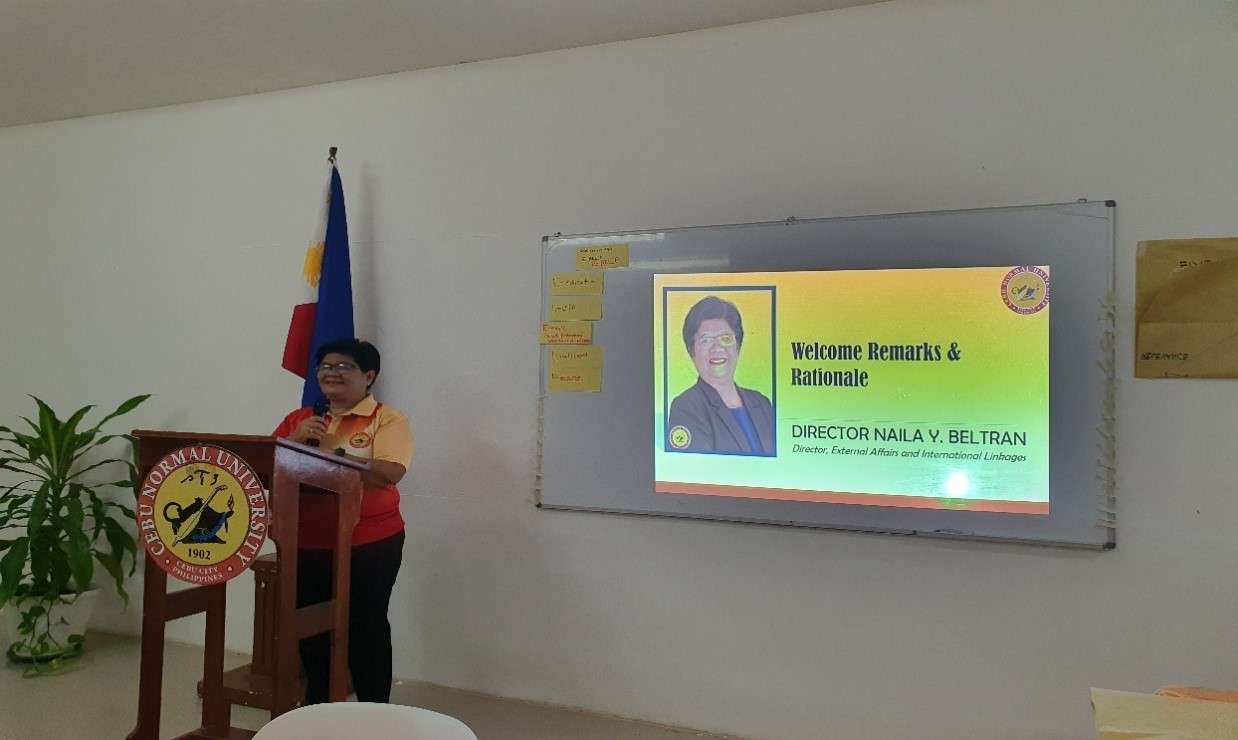
Additionally, she expressed the joy she felt at the participants’ resolve to attend the training with a passionate heart. The importance of building a reputation for being receptive to the needs of the community and the environment was emphasized by Director Beltran for Cebu Normal University. She emphasized the need for Cebu Normal University to establish a reputation for responsiveness to the environment and the community’s needs. She highlighted the university’s vision of seeking opportunities to improve livelihoods and identifying possible niches for development.
The engaging session led by Dr. Carolyn May O. Daquio (former Center Director, ATI 7), a highly respected expert and resource person for the morning and afternoon sessions, was a standout moment of the training program. As a former Center Director of the Agricultural Institute of Bohol with a wealth of knowledge, Dr. Daquio offered priceless insights into community-engaged extension work.
Dr. Daquio presented a thorough framework for rural development through extension services in the morning session, engaging participants in understanding the vital components and their connections. Participants’ understanding of the difficulties involved in fostering development and growth of the community through extension initiatives was heightened by this practical activity.
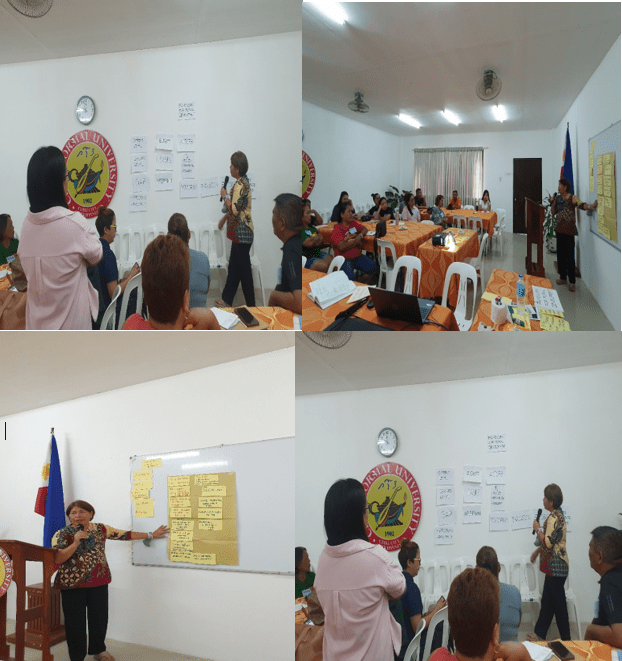
In the afternoon session, Dr. Daquio shared her knowledge of agritourism as well as her travel experiences, particularly in Bali. Her presentation highlighted the potential of agritourism as an extension strategy for long-term community development. Participants gained valuable insights into the principles and practices of agritourism and how they can be applied in their own communities.
Following Dr. Daquio’s presentation, participants engaged in a collaborative action planning session, either within their groups or by barangay, with the assistance of the College extension chairs. This session provided an opportunity for participants to put their knowledge from the day to use and create concrete strategies and initiatives for community development through extension programs.
Afterwards, participants were given the opportunity to present their action plans to the group. Dr. Carolyn May O. Daquio was critical in evaluating the participants’ outputs, providing valuable feedback and insights to further improve the action plans. Her evaluation encouraged critical thinking and refinement, ensuring that the proposed strategies were well-founded and aligned with the goals of sustainable community development through extension efforts.

The integration of the evaluation component in the afternoon session reinforced the importance of accountability and evidence-based decision-making in community development. It emphasized the need for thorough monitoring and evaluation to assess the effectiveness and sustainability of proposed extension interventions, thereby promoting continuous learning and improvement within the community.
The presence of Barangay officials, teachers, and SUGA NA beneficiaries aided the training program significantly. Their active participation and firsthand knowledge enriched the discussions by providing practical and nuanced perspectives. The diverse group of participants promoted a holistic learning environment and emphasized the value of collaborative efforts in community building through extension initiatives.
